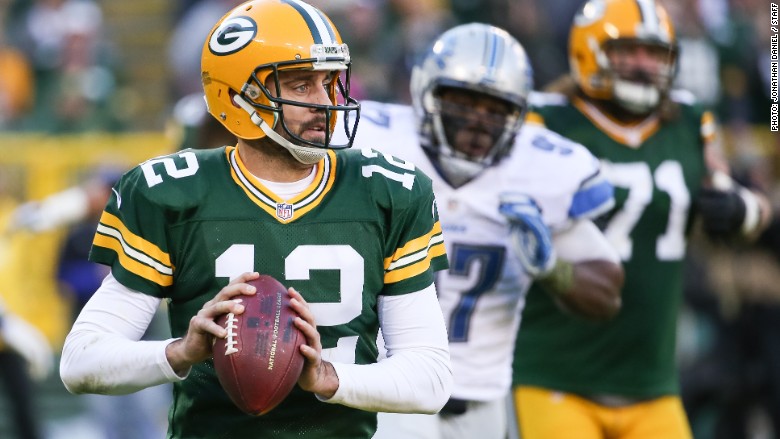What would happen if you took the NFL away from CBS, NBC and Fox?
How much lower would each broadcaster's rating be?
The impact would be immense. NFL football accounts for just a handful of programming hours each week, but accounts for 22% of total average viewership of the three networks this fall, according to CNNMoney's analysis of Nielsen ratings data.
NFL games draw millions of young viewers who otherwise possibly wouldn't watch the networks at all.
When football programming is stripped away, NBC, CBS, and Fox's viewership is 45% lower among men ages 18 to 49, a coveted demographic for advertisers.
This is why the relationship between the NFL and the television industry is so vital. This is why the networks spend billions of dollars on games. This is also why right now there is an intense competition for the league's Thursday Night Football package.
What all the bidders -- CBS, Fox, NBC, Turner, and others -- want is the ratings lift that the NFL provides.
The seven Thursday games that were simulcast by CBS and the NFL Network earlier this fall brought in an average of 17.6 million viewers. CBS was the main beneficiary.
Everyone in the TV business recognizes the NFL's ratings power. This data analysis -- which counts viewership between the kickoff of the season on September 10 through November 15 -- demonstrates just how powerful it is.
The analysis compares network viewership with NFL games and pre- and post-game shows versus what average viewership would be with pro football programming removed during that two month period.
Without football, viewership at CBS -- which has a Sunday afternoon package of games and had Thursday Night Football this fall -- would have fallen 15%.
NBC's viewership, which has the prime time "Sunday Night Football" package, would have been 24% lower without football.
Fox, which also has Sunday afternoon games, would have seen its audience drop 38%, partly because it has less daytime programming than the other networks during the week.
(Monday Night Football is on ESPN, which is a cable channel, not a broadcast channel.)
"In the early days, it was television that helped the NFL," said Brad Adgate, the research director at Horizon Media. "Now television, particularly the networks, is being aided tremendously by the NFL."

Of course this data comes with a big caveat: Without the games, the networks would air something else. But it wouldn't be nearly as highly-rated.
On the other hand, this analysis actually understates the power of the NFL, because it is an incredible promotional tool for the networks. The games give programs like CBS's "60 Minutes" a huge lead-in, a surge of viewership that the networks otherwise wouldn't have.
(Case in point: The New York Giants-New England Patriots game on November 15 gave the news magazine its highest ratings of the year.)
The networks also use the NFL to promote their upcoming schedules.
Live events, especially live sports, are becoming more important to the networks because they defy the trend toward delayed TV viewing that allows viewers to fastforward through commercials.
The NFL's scores and storylines force fans to tune in live -- which allows networks to charge more for advertising.
Adgate also noted that the NFL stands out due to its own marketing prowess, and ability to use free agency, the NFL draft, and training camp to make it a year round game.
"The marketing cloud that the NFL has is a textbook case of how to promote a product, or in this case a league," Adgate added. "In the age of audience fragmentation, they have proven to be immune."
That is one of the reasons why NBC's "Sunday Night Football" is the number one program on all of prime time television, averaging 23.1 million viewers this season, and its pre-game show "Football Night in America" averages 9.4 million.
"The gap between the NFL ratings and other television shows gets wider and wider every year," Adgate said. "The other television shows -- the scripted entertainment shows -- are certainly not immune to the competition out there for eyeballs the way the NFL is."
"The NFL is really... the last mass media event on television," he added.


